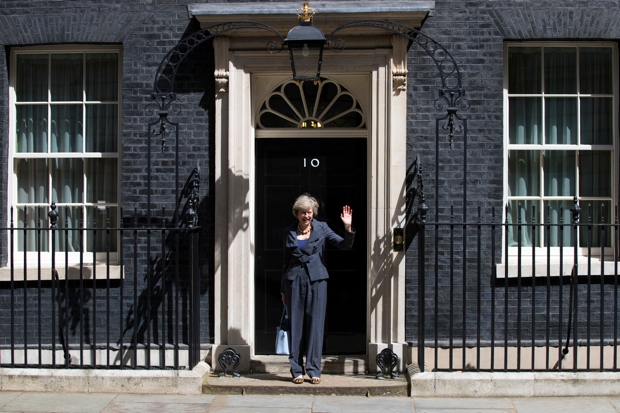What do Theresa May, Angela Merkel, Margaret Thatcher and, ahem, me have in common? We are all daughters of the clergy. Thatcher’s father was a lay Methodist preacher, so she’s not strictly in our camp, but the coincidence is close enough to call.
When I was young, I secretly harboured the suspicion that I was royalty and I courted this suspicion by making sure to always wear flouncy dresses on Sundays, a habit I still haven’t quite relinquished. I wonder if Theresa May’s well-charted interest in leopard print shoes has similar origins.
Growing up in a vicarage is a unique upbringing, and creates a kind of brotherhood (or sisterhood) among fellow vicars’ kids. It is not unusual to find a homeless man facing sexual harassment charges chatting to a hereditary peer across your kitchen table. Nor is it strange to come home to find your bed is taken by a teenage girl who’s been kicked out by her mum’s fifth husband and she’s just staying for a couple of days, except, six months later she’s still living there and calling your mother ‘Mum’. Encounters with gaseous and garrulous pensioners are also routine.
Exposure to such a broad church is excellent prime ministerial training. Nothing another person can throw at you is surprising or shocking, and you somehow muddle along regardless. This is reflected in Theresa May’s emphasis on ‘doing not talking,’ an attitude shared by Angela Merkel. Her philosophy — ‘We just get stuck in; politics isn’t a game, the decisions we make affect people’s lives’ — are the words of a true vicar’s daughter.
However there is also an ideological and more reflective side that is the basis for the action. I have never had a meal at home without thanking God before we tuck in. This was painfully awkward for most of my childhood, and in sulky defiance I would cross my arms and not say Amen. I would even go as far as to warn my friends that they would be subjected to this strange ritual. However I found that most of my friends, whatever their belief system, appreciated the prayer. It is after all a reminder of privilege; that food comes from the earth and we are grateful to God for it; a quiet reflection that, if nothing else, improves the taste.
Everything is thrown into serving the community. Not that this is often done without the substantial dragging of feet, but in some sense, that feet-dragging is important. Reluctance, after all, undermines the do-gooder mentality. My father differentiates between ‘hosting’ and ‘entertaining’. Most people invite others over to entertain them; to generally put on an impressive show. There is a time to arrive, and a time to go, and flowers or chocolate are bought. The duty of the church family is to host, he says. To invite people over to do life with us, to eat and drink whatever is going and in doing so, we can all listen to and learn from each other. At least that is the theory, which though well tested, doesn’t always work.
May’s strain of socialist ambition, to fight injustice and make the Tory party work for everyone, is done in the name of hosting not entertaining. There is no way that the entire country can be fed multiple courses of Ottolenghi salads over polite conversation before returning home to write a thank you note. If May manages to pull it off, it will be a necessarily messy, if somewhat chaotic mix of extra chairs shuffled in, Boris offending someone, and perhaps not quite enough of anything but faith.
Flora Neville is a freelance journalist with an interest in social issues, politics and architecture.






Comments